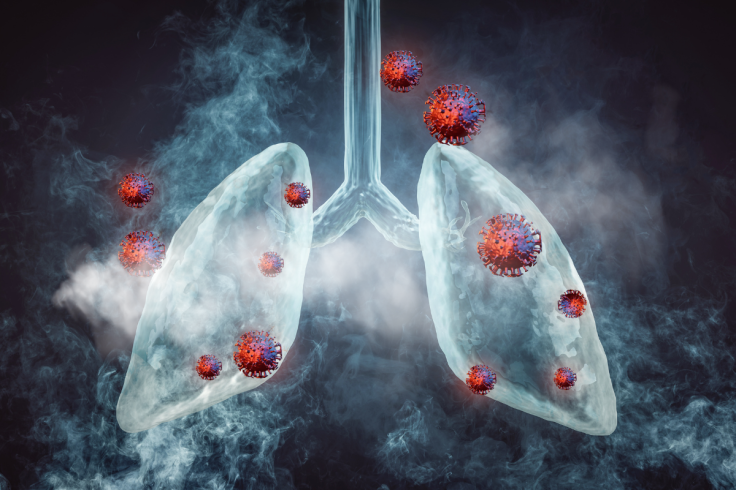Legionnaires' Disease: What You Need to Know About the Illness That Can Cause Brain Fog, Fatigue and Lasting Damage
Often mistaken for flu, Legionnaires' disease can trigger long-term brain fog and fatigue here's how to spot it and stay safe.

It is best known as a severe lung infection, but experts say Legionnaires' disease may leave survivors with far more lasting damage — including months of fatigue, brain fog, and reduced quality of life.
A Swiss investigation, published in Swiss Medical Weekly, is examining whether the illness triggers a long-term condition similar to Long COVID, with symptoms lingering well after the infection clears. Researchers are tracking pneumonia survivors for a year to understand the true health burden of this often-misdiagnosed disease.
A Hidden Illness That Often Goes Unnoticed
Even in advanced healthcare systems, about 90% of Legionnaires' cases are missed because symptoms vary and can mimic other pneumonias.
Caused by Legionella bacteria, the illness can lead to severe respiratory distress and complications such as kidney damage and confusion. A milder form, Pontiac fever, causes flu-like symptoms but rarely develops into pneumonia.
The LongLEGIO Study
The Swiss LongLEGIO project is the first matched cohort study comparing the long-term effects of Legionnaires' disease with other bacterial pneumonias.
Between June 2023 and June 2024, researchers recruited 59 patients with confirmed Legionnaires' and 60 with other bacterial community-acquired pneumonia. Groups were matched by age, sex, hospital type and diagnosis date.
Patients are followed for a year, with interviews during illness and at two, six and 12 months post-treatment. Questionnaires measure fatigue, persistent symptoms, healthcare use and quality of life, gathering data often absent from medical records.
Early Findings
Preliminary results from 119 patients reveal notable differences between those with Legionnaires' disease and other pneumonia patients. Those diagnosed with Legionnaires' reported muscle aches more frequently, with 51.8% affected compared to 25.9% in the other group, and fever was present in 89.3% of cases versus 76.3%.
They also had a higher rate of admission to intensive care, at 13.6% compared to 8.3%, and were more likely to suffer from chronic kidney failure, with 15.3% affected compared to 10%. Only one probable case of person-to-person transmission has ever been documented, confirming that the illness is typically contracted through inhaling contaminated water droplets rather than direct human contact.
Why It Matters
Pneumonia kills an estimated 1.3 million people annually worldwide, yet long-term effects are often underestimated. Researchers suspect some survivors develop a distinct post-Legionnaires' syndrome with prolonged fatigue, cognitive issues and reduced physical function.
If confirmed, the findings could change how patients are monitored after discharge and shape public health strategies.
Harlem Outbreak Claims Two Lives
In the US, two people have died and more than 50 have been diagnosed in an outbreak centred in Harlem, New York, since 25 July 2025. The New York City Department of Health confirmed all patients live or work in the Sugar Hill area. Emergency water testing and inspections are underway.
Dr Sharon Belamy, an infectious disease expert at Mount Sinai, told ABC7: 'Most people exposed to Legionella bacteria do not get sick, but those who do may face serious illness, particularly if they are over 50 or have underlying health conditions.'
Who Is Most at Risk?
Older adults, smokers, people with chronic lung disease and those with weakened immune systems face the highest risk. The CDC estimates one in 10 cases is fatal. Early antibiotics greatly improve recovery chances.
Long-Term Effects
The Swiss study found many survivors suffer brain fog, exhaustion and reduced concentration for months after treatment. Professor Dr Michael Gasser, lead author, said: 'These post-infection symptoms can resemble those experienced after COVID-19, including persistent tiredness and reduced mental sharpness. They interfere with work, daily routines, and overall quality of life.'
Treatment and Prevention
Legionnaires' disease is treatable with antibiotics, but severe cases often require hospitalisation. Prevention depends on proper maintenance of water systems in both public and private buildings.
In Harlem, health officials are alerting residents and landlords to disinfect water systems and continue monitoring to prevent further spread.
The Bigger Picture
Although not widely known, Legionnaires' is gaining attention due to the Harlem outbreak and mounting evidence of long-term complications. Experts say its potential for chronic after-effects and link to building water systems make early detection critical.
With over 50 people affected in Harlem and research suggesting possible lifelong impacts, public awareness and preventive measures are more important than ever.
© Copyright IBTimes 2025. All rights reserved.




















